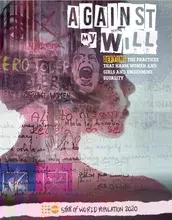HARARE, Zimbabwe, 30 November - The 18th International Conference on AIDS and STIs (ICASA) opened yesterday in Harare, Zimbabwe with HIV & AIDS experts and activists calling for continued investment to end AIDS by 2030.
This year's event, themed ‘Linking Leadership, Science & Human Rights in the post-2015 era', provides an opportunity for researchers to share the latest scientific advances in the field, learn from one another's expertise, and develop strategies for advancing collective efforts to treat and prevent HIV.
The conference was launched by Zimbabwean Vice President Emmerson Mnangagwa, who called for "collective efforts to defeat AIDs by 2030."
Africa carries 70% of global burden
Africa has recorded significant progress in the response to HIV & AIDS but much more needs to be done as the continent still accounts for at least 70 per cent of the global burden, he said. ICASA provides an excellent opportunity for collective discussion of new approaches that will help African countries defeat HIV & AIDS by 2030.
"We need to redouble our efforts with strategies and approaches that recognise the socio, economic and cultural values of Africans in eradicating the pandemic," he said.
"The Government of Zimbabwe is committed to increasing domestic funding for health targets set out in the Abuja Declaration of 2011. We have already demonstrated this through the ‘AIDS Levy' that we introduced to fund HIV & AIDS programmes in Zimbabwe."
Response must target adolescent girls
UNFPA Executive Director Dr. Babatunde Osotimehim, represented by UNFPA East and Southern Africa Regional Director Dr. Julitta Onabanjo, said that while progress has been made in some areas to address HIV & AIDS, there is a need to scale up HIV prevention efforts among young people, especially girls and young women. "Our responses to HIV must therefore address the needs of adolescent girls," said Dr. Onabanjo.
Globally, 380,000 new HIV infections occur every year among adolescent girls and young women. An estimated 80 per cent of young women aged 15-24 years who are living with HIV are in sub-Saharan Africa, and 74 per cent of new HIV infections in the region are among adolescent girls.
"Violence, child marriage, inability to negotiate safe sex, and lack of access to sexual and reproductive health information and services - including lack of access to condoms, comprehensive sexuality education, HIV and STI testing, counselling, and treatment - increase adolescent girls' vulnerability." - Dr. Onabanjo
The biennial International AIDS Conference is the premier gathering of the AIDS community as well as leaders, people living with HIV and others committed to ending the epidemic. At least 5000 participants, including government officials, donors, activists, women's groups, young people and media professionals, are attending the conference. It aims to increase African leadership and ownership as well as investment in financing to support the continents health response. It hopes to strengthen the interaction between the public, health, science and human rights approaches in the control and elimination of HIV & AIDS and associated diseases; improve awareness and learning on knowledge, skills and best practices from the response to AIDS and other emergent diseases; and promote the development and scale of evidence-based interventions for HIV & AIDS and associated diseases in the post-2015 development era.
By Bertha Shoko-Nleya & Adebayo Fayonin



